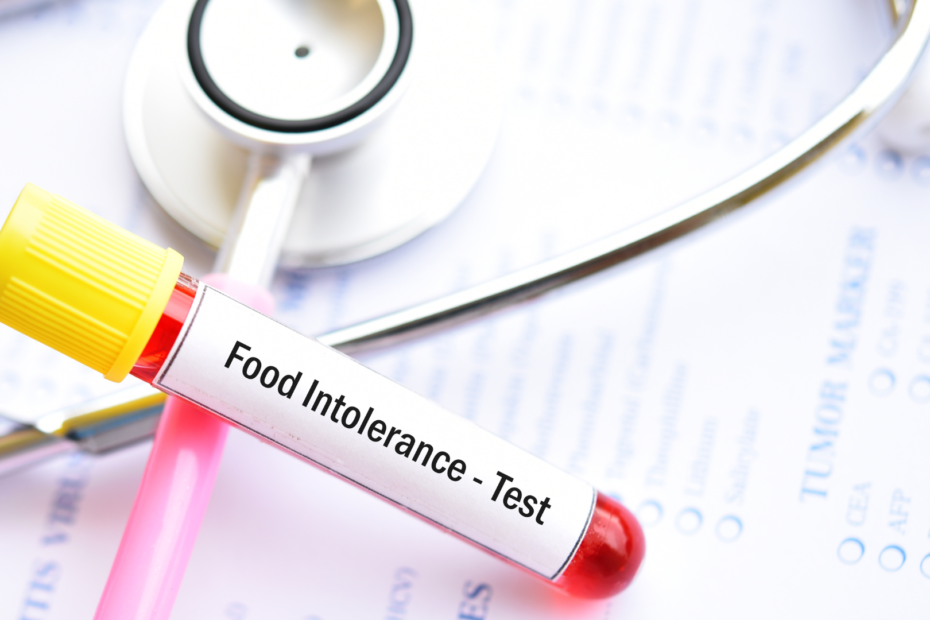If you think that you may have a food intolerance, also known as food sensitivities, then you are a little bit in luck as food intolerances are not normally life-threatening like food allergies are, however, they can still be horrible for people to deal with and can cause quite a few problems with eating.
In recent years, people with food intolerance/food sensitivity symptoms have risen. It has been said that around 20% of people in the world may have a food intolerance to certain foods.
Some of the most common food intolerances are lactose intolerance and gluten intolerance, however, there are others that are becoming more well-known due to a variety of symptoms occurring in multiple people.
Today, we will discuss what a food intolerance is, what food intolerances there are, and how to spot food intolerance symptoms so that you can adjust your diet accordingly.

What is a Food Intolerance
As mentioned before, a food intolerance is not the same as a food allergy, however, there are times when symptoms will overlap but an intolerance will not put you at serious harm.
You will still need to check with a doctor first to see if your symptoms are an indication of food allergies or food intolerances, they will be able to run some tests to make sure just in case.
How Fast Can Your Body React?
A reaction occurs with food intolerances within a few hours after eating the food, however, there are times when that can be delayed for a couple of days and it can last from hours to days which can be hard for people to pinpoint exactly what certain food has upset their natural rhythm.
The symptoms of food intolerances will vary, but a lot of them will be linked to your digestive system which can cause a lot of uncomfortableness.

Common Symptoms of Food Intolerances
- Bloating
- Diarrhea
- Abdominal pain
- Rashes
- Reflux
- Runny nose
- Fatigue
- Nausea
- Headaches
If you are experiencing any of these, then you will need to go to the doctor for some blood tests just to rule out any other problems that you may have, or check for a food allergy.

What is a Food Allergy?
Having a food allergy is more serious as it could potentially cause death if not dealt with in the appropriate amount of time.
You know how to identify food intolerances, but it is also important to identify food allergy symptoms just in case you suspect you or someone you know may have one.
Common Symptoms of Food Allergies
- Tingling or itching in the mouth
- A raised and itchy red rash (urticarial)
- Swelling of the face or mouth
- Difficulty swallowing
- Wheezing or shortness of breath
If you are experiencing these kinds of symptoms with a specific food, then it is essential that you go to your doctor and get this dealt with right away, or go to the emergency room if things start to get worse.

There isn’t a Test For Everything
There are some food intolerances that you can be tested for, however, not everything is easy to test, for instance, you cannot be tested for gluten sensitivity or a histamine intolerance, but an allergy test can help you with food allergies so you can see how it affects the immune system but it won’t let you know what type of intolerance you have.
You may be asked to keep a food diary to write down what you eat daily and how you feel after you eat to try and link up what foods may be causing you to feel unwell.
Remember – a food intolerance is different from a food allergy, and your immune system is not causing your intolerance, so you won’t have a severe allergic reaction whilst dealing with your intolerance.

What Are The Common Food Intolerances?
You now know the difference between a food allergy and food intolerance, so it is time to go into what common food intolerances there are so you can see if you may have one.
If you are still unsure, you can always try an elimination diet where you remove certain foods from your diet for a number of weeks (normally two to six) and then see if any of your symptoms go away at this time and if they come back when you start eating the food again.
If this doesn’t work, you might want to make an appointment with a registered dietitian to get some help about what to do and see if they can shed some light on your issues.
You could be intolerant to specific food additives which can be hard to pinpoint right away.

Gluten Intolerance
This is the label given to the proteins in wheat, barley, rye, and triticale.
There are a handful of conditions that are linked to a gluten intolerance which include celiac disease, non-celiac gluten sensitivity, and wheat allergy.
Celiac disease involves an immune response, which is classed as an autoimmune disease.
What allergies can be confused with this disease as the symptoms and reactions are similar in nature.
Both celiac disease and non-celiac gluten sensitivity are dealt with using a gluten-free diet.
Foods to Avoid
- Bread
- Beer
- Pasta
- Cereal
- Crackers
- Sauces, dressings, and gravies

Dairy and Lactose Intolerance
Lactose is a sugar found in milk and dairy products.
It is broken down in the body using an enzyme called lactase which helps lactose be absorbed into the body through digestion.
If someone has lactose intolerance it is because they have a shortage of lactase enzymes in their system so they are not able to digest lactose properly, resulting in some unpleasant symptoms.
It is quite a common intolerance, so you may find that plenty of people have a problem digesting dairy products or products specifically containing high amounts of lactose.
Foods to Avoid
- Milk
- Ice cream
- Anything that has a base of dairy in it
There are some dairy products that may be easier on the system, for instance, fermented products like kefir is easier to digest as is aged cheeses.
They don’t contain that much lactose so they won’t irritate the stomach too much.

Caffeine
Bad news for people who love their coffee, caffeine intolerance is very real and it is said the sensitivity to it is due to genetics as well as a decreased ability to metabolize and excrete caffeine.
Many adults are able to have around 400mg of caffeine a day without experiencing any side effects, but it depends on the person and how sensitive their body is to caffeine.
This type of intolerance is different from a caffeine allergy which includes the immune system just like other allergies do.
Symptoms to Look Out For
- Anxiety
- Jitters
- Rapid heartbeat
- Insomnia
- Restlessness
Products to Avoid
- Coffee
- Soda
- Chocolate
- Tea
- Energy drinks

Sulfites
We do have a lot of preservatives nowadays, and the chemicals in these preservatives are mostly sulfites.
They are also found naturally in grapes and aged cheeses.
Being sensitive to sulfites is common in those who have asthma, however, that is not always the case and quite a few asthma sufferers can manage consuming sulfites.
On the severe side of that, sulfites have the potential to cause airway constriction in asthmatic patients, which has the potential to lead to life-threatening reactions.
Foods to Avoid
- Dried fruit
- Wine
- Canned vegetables
- Pickled foods
- Potato
- Condiments
- Baked goods
- Apple cider
- Beer
- Tea

What Else Can People Be Allergic To?
There are other intolerances that are not as well-known but equally important.
Aspartame
An artificial sweetener used as a sugar substitute.
MSG
A flavor enhancer in foods.
Eggs
Some find it hard to digest but are not allergic.
Yeast
Mainly affects the digestive system and they are not as severe as a yeast allergy.
Sugar Alcohols
In zero-calorie drinks that don’t use sugar.

Conclusion
After reading through this list, you should now be aware of how to know what food intolerance you have and if you should get it checked out by a doctor.
For any suspicion of a food allergy, you should always go to the doctor just in case as you never know what could happen if it is left untreated.

